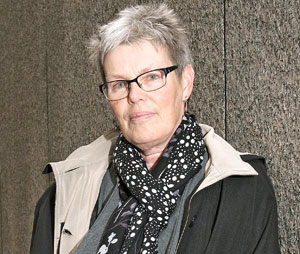Lawyers say a recent Ontario Court of Appeal decision in a dispute over insurance beneficiary designations has important implications for when the remedy of constructive trust is available to a party.

In
Moore v. Sweet, the court set aside a motion judge’s decision to grant $250,000 in proceeds of a dead man’s insurance policy to a former wife, Michelle Moore, who had been paying policy premiums, instead of giving them to his common law wife, Risa Sweet.
The case turned on whether a constructive trust is available as a remedy in only two situations, which are when unjust enrichment and wrongful acts have taken place.
The case also concerned whether provisions in the Insurance Act provided a juristic reason for the enrichment of one of the parties or whether there should be a finding of unjust enrichment.
Lawyers say the decision is important as it provides a complex legal analysis on issues that are never straightforward and deals with the intersection of family law and insurance law.
“The issue of constructive trust comes up frequently and this case is dealing with the legal principles that judges need to consider in deciding whether to grant that remedy or not,” says Sheila Crummey, an estate planning lawyer with Miller Thomson LLP, who did not act in the case.
“This is going to come up time and time again so it’s important that the legal framework for deciding those disputes is clear.”
The case concerned the fact that Moore had been named the beneficiary of the life insurance policy before she was divorced from her husband, Lawrence Moore, but she was never labelled as an irrevocable beneficiary. Despite having an oral agreement with Moore that she would receive the proceeds of the policy if she continued to pay the premiums, the former husband later designated Sweet as an irrevocable beneficiary.
The dispute arose out of who was entitled to the proceeds of the policy when he died.
The motion judge ruled in favour of Moore.
In a split decision, the Court of Appeal overturned the motion judge’s decision, arguing that he had inappropriately relied on the concept of equitable assignment, which is a mechanism by which rights are conveyed by one party to another.
The court found that the judge erred in relying on equitable assignment, as it was not argued in the pleadings.
A two-judge majority also argued that the Insurance Act, under which Sweet had been designated the irrevocable beneficiary, provided a valid juristic reason for Sweet’s enrichment.
Therefore, there could be no finding of unjust enrichment. Jeremy Opolsky, the lawyer who represented Sweet on the appeal, says the majority’s decision accurately reflects what he thinks the laws surrounding unjust enrichment and constructive costs should be.
“Justice Blair has a very crisp and clean way of cutting to the core of what unjust enrichment is supposed to be and how to distinguish between when and when not to apply the doctrine,” he says. The lawyer representing Moore, David Smith, says he intends to seek leave from the Supreme Court of Canada to appeal the Court of Appeal’s decision. He says one of the takeaways from the decision is that irrevocable insurance beneficiary designations can be very tough to set aside.
“These are very tough cases. Once somebody makes an irrevocable beneficiary designation, the insurance act treats that as basically being airtight, and the circumstances in which that can be set aside are rare but not insurmountable,” he says.
Note: The online edition of this story has been corrected to reflect that Jeremy Opolsky was the lawyer who represented Risa Sweet on the appeal, and that lawyer David Smith represents Michelle Moore.

 In Moore v. Sweet, the court set aside a motion judge’s decision to grant $250,000 in proceeds of a dead man’s insurance policy to a former wife, Michelle Moore, who had been paying policy premiums, instead of giving them to his common law wife, Risa Sweet.
In Moore v. Sweet, the court set aside a motion judge’s decision to grant $250,000 in proceeds of a dead man’s insurance policy to a former wife, Michelle Moore, who had been paying policy premiums, instead of giving them to his common law wife, Risa Sweet.